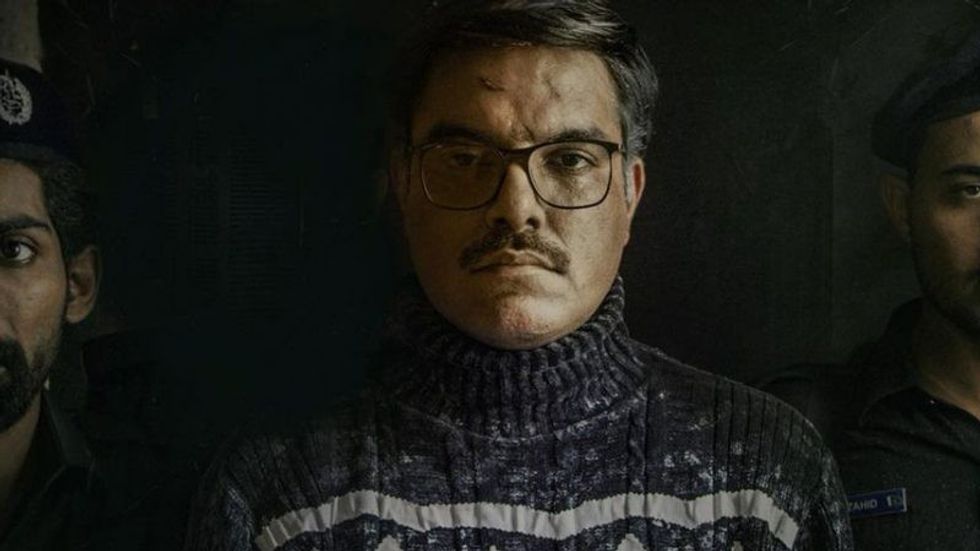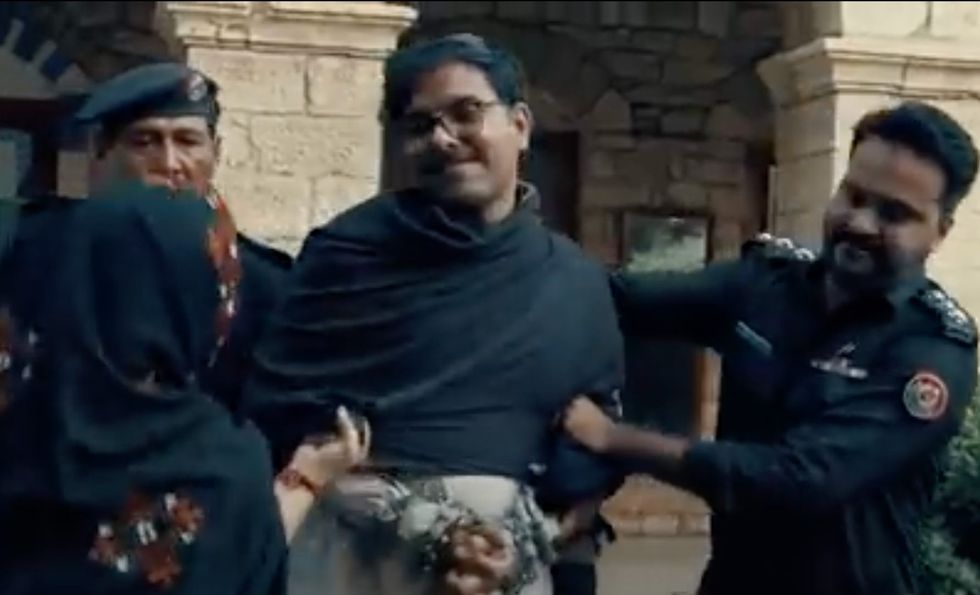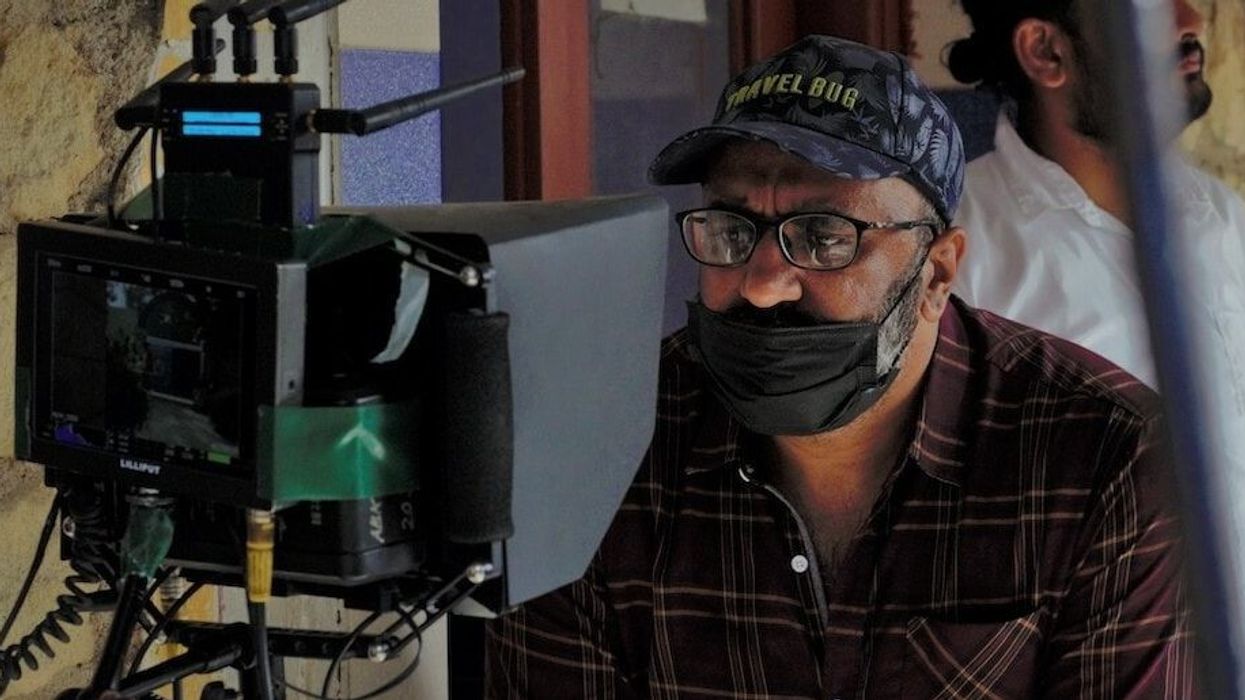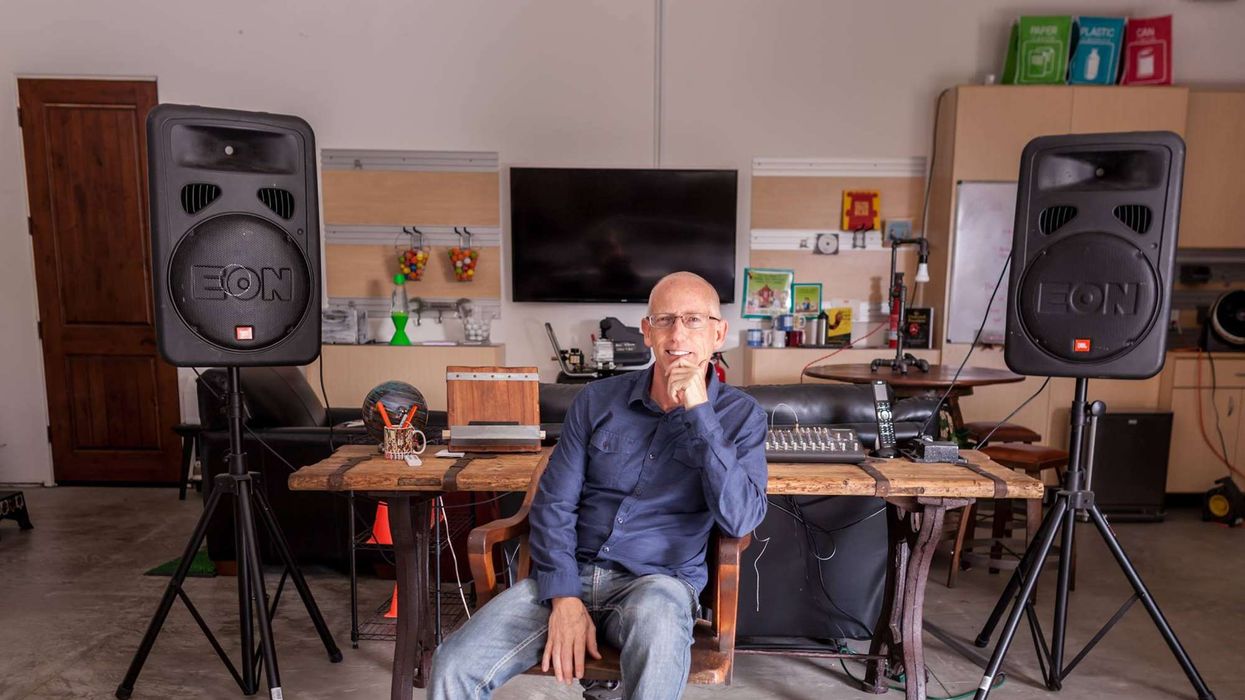EARLIER this year, Javed Iqbal: The Untold Story of a Serial Killer was banned in Pakistan shortly before its highly anticipated release, despite being passed by censors.
The hard-hitting drama is based on the investigation of real-life 1990s serial killer Javed Iqbal, who sexually abused and murdered 100 children in Lahore, while sending evidence of his heinous crimes to authorities and media. The filmmaker is fighting to get the movie – which stars Yasir Hussain as the notorious killer and Ayesha Omar as the police officer hot on his trail – released, despite receiving wide support from celebrities.
Eastern Eye caught up with senior journalist turned writer-director Abu Aleeha to talk about his controversial film, its ban and what drives him creatively.
What would you say first connected you to filmmaking?
I was based in Islamabad as an investigative journalist and from there went into content writing. I started travelling to Karachi and would present ideas to TV channels and production houses. I was encouraged and discouraged by some, but slowly, I started getting work. After two years of content writing for production houses, my credits never appeared anywhere, but it gave me the opportunity
to learn.

When did you first encounter the story of serial killer Javed Iqbal?
In 1999, when I was working as a crime reporter in Islamabad, I came to know of this incident in Lahore. Thanks to my relationship with journalists in the city and the press club there, I started following the case closely. I started studying the characteristics of Javed Iqbal from when he was arrested and the trial, up until his murder in prison. There were lots of questions and conspiracy theories that I tried to get to the bottom of, to find out what really happened. I learnt something new every time I dug into the story.
What made you decide to make a film about this man?
I felt this story needed to be told and wanted to address all the conspiracy theories. We talk about Ted Bundy and other serial killers who murdered a relatively small number of people, but you always find a documentary or a movie on them. In Pakistan, we had a prolific killer who murdered 100 children and confessed, yet there wasn’t a single story or film based on him. So, I decided that this story should be brought to the people.

Tell us about the film?
The film revolves around Pakistan’s worst-known serial killer Javed Iqbal, who confessed to murdering more than 100 children in Lahore in 1999. He was infamous for delivering the details of his crimes to the authorities, along with evidence, including clothes and photographs of victims. In October 2000, Javed was found dead in his prison cell.
How did you feel when the film was banned before its release?
The whole idea of the film was not to glorify the serial killer or make a hero out of him. We haven’t made ‘the legend of Javed Iqbal’. We wanted to show the story of a child molester, someone who people should hate, but at the same time, audiences should also learn about and identify the potential threat of child molesters and rapists, who could be a danger to children, and which could help parents identify them. This was the idea of making this film.
Why do you think it has been banned?
The Pakistan censor board had passed the film, so it’s hard to comment on this. If the censor board hadn’t passed the film or understood the story, then I could understand, but I don’t know or understand what exactly has happened. To halt a film based upon a complaint made by someone about the film doesn’t make sense. It never played in cinemas, then where did the blame come from?
So, this is one big joke, in the name of the system and censor board. But now we have taken this matter to the high court. A third party trying to get it banned is beyond our understanding and totally shocking.

What do you intend to do with it now?
My work is as a writer and director is to make a film. The producer is exploring several options. We all want to bring the film to cinemas nationwide through whichever legal means. We are also exploring other options, such as a [streaming] platform, where maximum audiences would be able to watch this.
Did you learn anything new while making this movie?
Javed Iqbal is my seventh movie. I may perhaps be the first independent filmmaker in Pakistan who has seven different genre films. I never repeat genres nor the same actors in any of my films. I am happy and ready to work with anyone. I am ready to tackle different kinds of genres. There has never been a film made to date in Pakistan about the serial killer Javed Iqbal, so I learnt a lot from this film.
What can we expect next from you?
I am currently shooting my eighth film. It is a gangster crime thriller. For the first time I managed to get a decent budget, big star cast, big DOP and art direction. I am taking a risk at the same time, as I don’t want to venture into the commercial side of cinema. My films will always stay offbeat, where I want to add my unique signature to them.
Finally, what inspires you creatively?
I never went to film school. There isn’t even a proper academy in Pakistan that could teach you filmmaking. I have grown after each film I’ve made as a writer and director. I just want to continue improving after each film and rectifying any mistakes in my next project. With each film my craft is improving and keeps driving me creatively.













